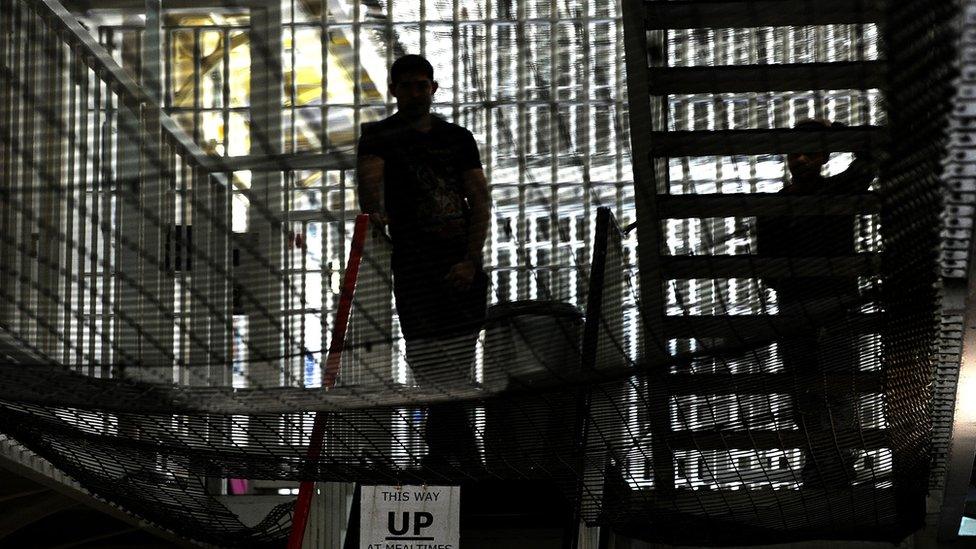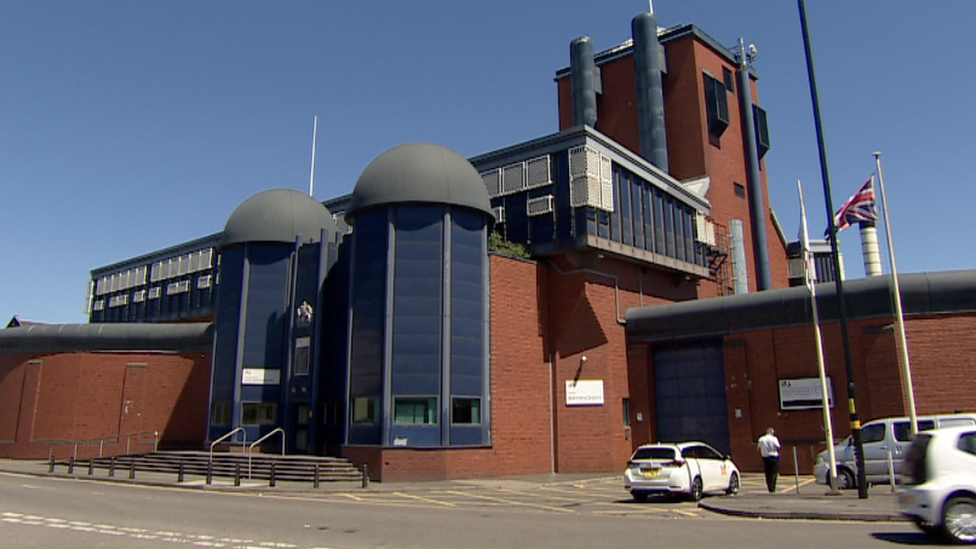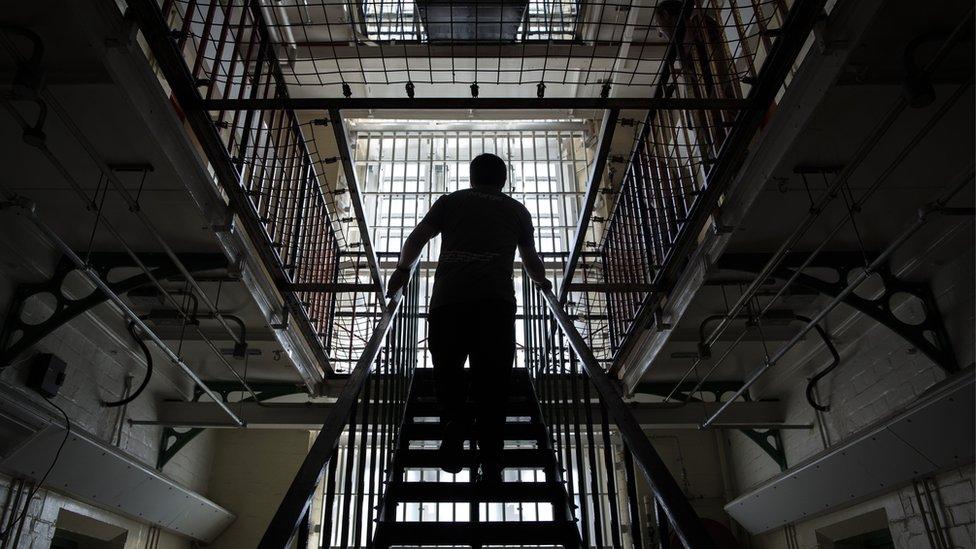Rise in number of call-outs for specialist prison squad
- Published

The number of times specialist prison officers were deployed to prisons in England and Wales in 2018 increased by nearly 60% since 2014.
The National Tactical Response Group handles potentially serious incidents.
The Prison Officers' Association blamed the rise on a lack of staff, increasing violence, drugs, access to mobile phones and overcrowding.
However, the Ministry of Justice said the majority of deployments were for non-violent incidents.
'It's horrendous'
The figures, obtained by BBC Radio 5 Live, show that the NTRG was called out 640 times in 2018, compared with 402 deployments in 2014.
The figure has mostly risen in each of the last four years, with 467 deployments in 2015, 585 in 2016 and 547 in 2017.
The NTRG is called to prisons to deal with potentially serious incidents, such as prisoners climbing onto roofs or safety netting, hostage-taking, and where two or more prisoners are disobeying instructions.
Most of the call-outs in 2018 involved prisoners climbing onto roofs or safety netting, and there were more than 30 hostage situations.
Neil Samworth, a former prison officer at HMP Manchester, said: "It's horrendous now - assaults have gone through the roof."
"Staff are regularly potted [have faeces and urine thrown at them] and it's the level of assaults.
"There aren't enough officers to get people out of their cells so the prisoners are bored, they take drugs and that leads to violence and bullying.
"I've been assaulted before - I had a prisoner try and strangle me, I've been kicked, spat at. It causes anger and frustration among officers."

Former prison officer Neil Samworth says assaults have "gone through the roof"
In 2018, the most deployments were to HMP Humber, where the NTRG was called out 40 times.
Lowdham Grange prison in Nottinghamshire saw the biggest rise over the last four years - 35 call-outs in 2018 compared to seven in 2014.
The Prison Officers' Association, the union for prison staff, said it was "not surprised" by the figures.
"It shows a multitude of problems in our prisons, including lack of staff, increasing violence, drug problems, access to mobile phones and overcrowding," it said.

Analysis
By Danny Shaw, BBC Home affairs correspondent
These figures illustrate the risky reality of life in many of our prisons. On an average of almost two occasions every day the specialist services of the NTRG are called upon to deal with danger or disorder.
It shows that despite the recruitment of extra prison officers to partially fill gaps caused by staff cutbacks between 2010 and 2016, despite a (little talked about) reduction in the jail population of nearly 4,000 over two years, and despite government investment in security measures, trouble is never far from the surface.
Two of the prisons with the most call-outs, Humber and Lindholme, are among 10 establishments receiving support to cut levels of violence and drug-taking.
Prisons minister Rory Stewart has staked his political career on bringing assaults down in the 10 jails by the summer and, on this evidence, he continues to have his work cut out.

When the tactical response group is not enough, prisons can also call on Tornado, a specialist riot team.
Additional figures obtained by 5 Live showed the Tornado team was called out eight times in 2018 - a decrease on 2017 (23 times), and 2016 (16 times).
The POA said Tornado call-outs had dropped because local prison staff were rapidly dealing with "concerted indiscipline" - which involves two or more prisoners - before it escalated.
The Ministry of Justice said the NTRG and Tornado "provide additional support staff or resources to prisons to help them deal with a variety of incidents".
"The overwhelming majority of call outs are for non-violent incidents, including where they attended as a precaution and when the situation was resolved by prison staff," it said.
- Published3 July 2018

- Published31 January 2019

- Published17 August 2018
